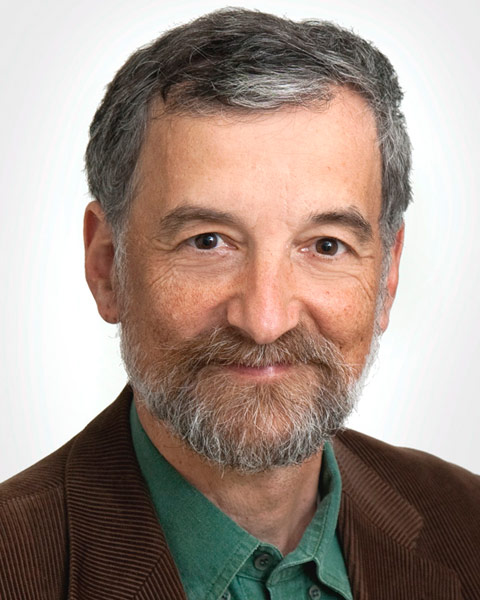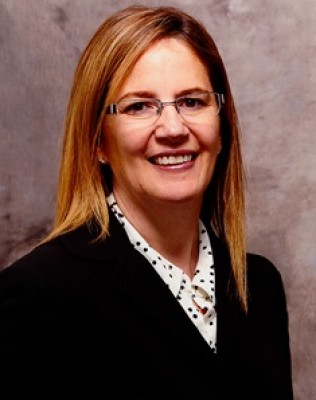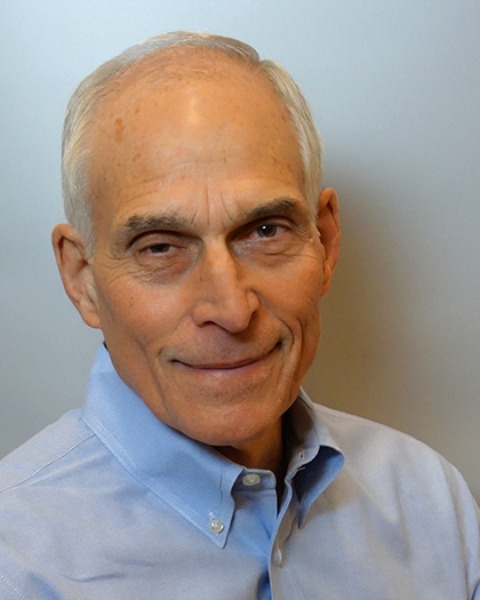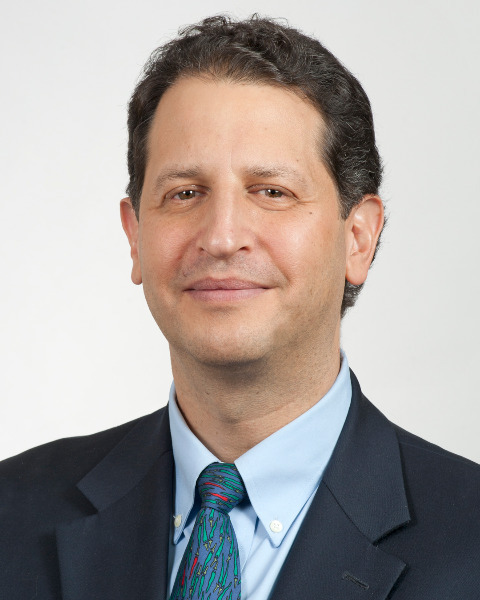
Engaging Healthcare Practitioners to Address the Opioid Crisis (1.5 CME)
- Registration Closed
Despite substantial efforts to encourage adoption of evidence-based practices, the use of medications to treat substance use disorders is still low in both primary care and specialty addiction treatment settings. In this presentation the status of efforts to implement buprenorphine prescribing in primary care and other settings will be described. Barriers to treatment for opioid use disorders and potential strategies to address them such as collaborative care models will be discussed. Successful strategies and lessons learned from efforts to encourage the provision of buprenorphine in specialty and general medical settings will be identified in order to inform future efforts to expand access to medication for opioid use disorder. The Massachusetts Collaborative Care Model for the delivery of opioid agonist therapy with buprenorphine, in which nurses working with physicians play a central role in the evaluation and monitoring of patients, holds promise for the effective expansion of treatment for opioid use disorders. The Massachusetts Bureau of Substance Abuse Services (BSAS) initiative to implement the office-based opioid treatment with buprenorphine (OBOT-B) collaborative care model in fourteen community health centers (CHCs) will be described. With the passage of the Comprehensive Addiction and Recovery Act of 2016 (CARA), significant changes to federal policies will ultimately increase states' capacity to provide medication-assisted treatment. Representatives from the American Association of Nurse Practitioners (AANP), the American Academy of Physician Assistants (AAPA), and the American Society of Addiction Medicine (ASAM) Medical Education Council will describe stakeholders' interest in providing treatment for substance use disorders and identify needs of their constituencies. Each speaker will provide recommendations regarding the messaging needed to address stigma and to engage healthcare professionals. Speakers will also identify potential pitfalls or barriers to consider in efforts to encourage healthcare practitioners to identify and treat substance use disorders. After brief didactic presentations, a panel discussion with addiction medicine experts and representatives from nursing, NP, and PA communities will be held. Through interactive discussion speakers will address questions most relevant to attendees and discuss factors influencing the engagement of healthcare practitioners in local settings to increase access to appropriate, evidence-based treatments for opioid use disorder across the country.

Kristen Huntley
PhD
Kristen Huntley, Ph.D., is a Health Scientist Administrator at the National Institutes of Health (NIH), National Institute on Drug Abuse (NIDA), Center for Clinical Trials Network (CCTN) where she oversees research studying the effectiveness and implementation of interventions for the treatment of substance use disorders in multi-site, nationwide studies that enroll large samples of diverse participants in general medical settings and community-based treatment programs. Dr. Huntley also manages activities conducted through NIDA’s Blending Initiative. This initiative supports collaboration between clinicians, scientists, and experienced educators to facilitate the adoption of evidence-based practices in front-line clinical settings. During her tenure at NIH Dr. Huntley has served as a Scientific Review Officer at NIDA and as a Program Director at the National Center for Complementary and Integrative Health (NCCIH) where she administered a portfolio of pain management research grants and led efforts to build collaborations with other federal agencies to encourage research on the use of integrative models of care in military and veteran populations. Prior to working at NIH, Dr. Huntley was on the faculty at Case Western Reserve University School of Medicine, a project director at a research and consulting firm, and has worked in a variety of healthcare settings. Dr. Huntley has a Ph.D. in clinical psychology and has over 20 years of experience in academic, research, and clinical settings.

Jeffrey Samet
MD, MA, MPH
Dr. Samet is a graduate of Brandeis University and Baylor College of Medicine. He trained in Internal Medicine at Boston City Hospital, Boston University School of Medicine (BUSM), and in a research fellowship at the Massachusetts General Hospital. He has been a primary care physician in Boston since 1983. Dr. Samet is a Professor of Medicine at Boston University School of Medicine and Professor of Community Health Sciences at the Boston University School of Public Health. In 2002, he became the Chief of General Internal Medicine at BUSM/Boston Medical Center and Vice Chair for Public Health in the Department of Medicine. Dr. Samet has a longstanding commitment to educating physicians about substance use disorders. From 1995-2012 he served as Medical Director of Substance Abuse Prevention and Treatment Services for the Boston Public Health Commission. He was President of the Association of Medical Education and Research in Substance Abuse (1999- 2001), co-chair of the Substance Abuse Task Force of the Society of General Internal Medicine (1992-2002), and a member of the Institute of Medicine Committee on Addressing the Quality Chasm in Mental Health and Addictive Disorders. Dr. Samet chaired the ASAM Medical-Scientific Annual Conference Program Committee 2004-2010 and 2012-2013 he served as President of the American Board of Addiction Medicine (ABAM) and the ABAM Foundation.

Colleen LaBelle
BSN, RN-BC, CARN
Colleen LaBelle has certifications in addiction nursing and HIV with over 20 years of clinical experience in HIV and addiction, and co-authored a publication in the Journal of General Internal Medicine, “Treating Homeless Opioid Dependent Patients with Buprenorphine in an Office-based Setting." She was instrumental in the start up of the OBOT Program in the BMC Primary Care Clinic, which manages over 450 active patients with buprenorphine. This program provides buprenorphine treatment for patients in primary care, homeless, HIV, Family Medicine, OB, and support to the affiliated community health centers. She is the program director of the STATE OBOT B (State Technical Assistance, Treatment Expansion of Buprenorphine) working with 14 community health centers implementing a nurse care manager model for the expansion of buprenorphine. Since 2003, Ms. LaBelle has served as Faculty for the buprenorphine certification course of the American Society of Addiction Medicine. She frequently gives presentations on buprenorphine and provides consultation and technical assistance on- and offsite and by telephone. She oversees the MDPH buprenorphine list-serve and provides liaison for MDPH supported buprenorphine training, education and start-up in Massachusetts. She speaks on a local and national level, and has been a part of the SAMHSA Summit on Buprenorphine. Ms. LaBelle has served as a member of the Scientific Study (Study Section) Review Committee for the National Institute on Drug Abuse. Since 2004, she has served on the National Advisory Committee on Buprenorphine for the Health Resources and Services Administration and participated in professional editing of TAP 30 Technical Assistance Publication for Nurses with SAMHSA, 2009. Co-author : Five Year Experience with Collaborative Care of Opioid Addicted Patients using Buprenorphine in Primary Care, published Archives of Internal Medicine. In May 2011 she was the recipient of Individual Leadership Award, for Innovation In Health Care from MA Bureau of Substance Abuse Services as well as a NIATX award recipient 2011 Innovations in Behavioral Health Services award for Process Improvements. She is a board member of the Addiction Nurses Certification Board, and recently started a MA Chapter for addiction nurses.

Andrew Saxon
MD, FASAM
University of Washington School of Medicine, VA Puget Sound Health Care System
Preceding his entry into psychiatry, Dr. Saxon completed an internal medicine internship and worked for 4 years as an emergency room physician. Subsequent to his general psychiatry residency at the University of Washington, Dr. Saxon has more than three decades of experience as a clinical and research addiction psychiatrist. Dr. Saxon is board certified with added qualifications in addiction psychiatry by the American Board of Psychiatry and Neurology. Dr. Saxon sits on the editorial boards of the journals, Drug and Alcohol Dependence and General Hospital Psychiatry and is section editor for substance use disorders for UpToDate. He is a lifetime Distinguished Fellow of the American Psychiatric Association, where he served from 2017-2019 as that organization’s Chair of the Council on Addiction Psychiatry, and a Fellow of the American Society of Addiction Medicine, as well as a member of College on Problems of Drug Dependence and of American Academy of Addiction Psychiatry.
Dr. Saxon’s current research work is supported by the VA, the National Institute on Drug Abuse, and National Institute of Mental Health and involves pharmacotherapies and psychotherapies for alcohol, tobacco, and opioid use disorders, work in co-occurrence of substance use disorders and posttraumatic stress disorder, phenomenology and epidemiology of cannabis use, and treatment of substance use in primary care. He has more than 180 papers published in peer reviewed journals and has done numerous conference presentations.

Marie-Michele Leger
MPH, PA-C
Ms. Léger a PA for 33 years is director, clinical education at AAPA. She obtained a Bachelor’s of Science, Physician Assistant Program, George Washington University (GWU), Washington DC in 1983 and completed her Master in Public Health, (International Health, Concentration: Health Promotion/Disease Prevention), from GWU in 1996.
She monitors, advises AAPA’s leadership on issues in clinical medicine, public health, coordinates activities that relates to continuous professional development, translate best available evidence which leads to PA practice improvement. Ms. Léger is the AAPA’s liaison to the Centers for Disease Control and Prevention (CDC) Advisory Committee on Immunization Practices (ACIP). She has published extensively; written editorials on raising the awareness of emergency preparedness and raising the rate of adult immunization. Ms. Léger has given presentations in the United States and internationally addressing the PA profession, disparity in healthcare, immunization, and other infectious disease topics. Ms. Léger retains a faculty appointment at the George Washington University School of Medicine and Health Sciences and at the Shenandoah Physician Assistant Program.

Anne Norman
DNP, APRN, FNP-C, FAANP
Dr. Anne Norman is a Family Nurse Practitioner (FNP) and the Vice President of Education and Accreditation at the American Association of Nurse Practitioners (AANP). She received her Master of Science in Nursing at the University of Alabama at Huntsville in 1994 and her Doctor of Nursing Practice at the University of Alabama at Birmingham in 2010. Dr. Norman has practiced in primary care and held leadership positions in various settings including: a multiple disciplinary medical school health center, rural health, college health, retail health and workplace/occupational health. At AANP, she serves as the primary organizational resource on continuing education (CE) and education-related standards, recommendations, and requirements. Her responsibilities include directing the grant, education, and accreditation activities of the association by overseeing and guiding the planning, development, and implementation of educational activities and programs to meet strategic goals.

Daniel P. Alford
MD, MPH, FACP, DFASAM
Daniel Alford, MD, MPH, FACP, DFASAM is a Professor of Medicine and Associate Dean of Continuing Medical Education at Boston University School of Medicine (BUSM). He is on staff in the Section of General Internal Medicine and Director of the Clinical Addiction Research and Education (CARE) Unit at Boston Medical Center. He is the Medical Director of the CDC-funded Boston Sustainable Models for unhealthy Alcohol use ReducTion (B SMART) and the HRSA funded SBIRT And FASD Education, Support and Treatment (SAFEST) Choice programs.
No relevant financial disclosures

